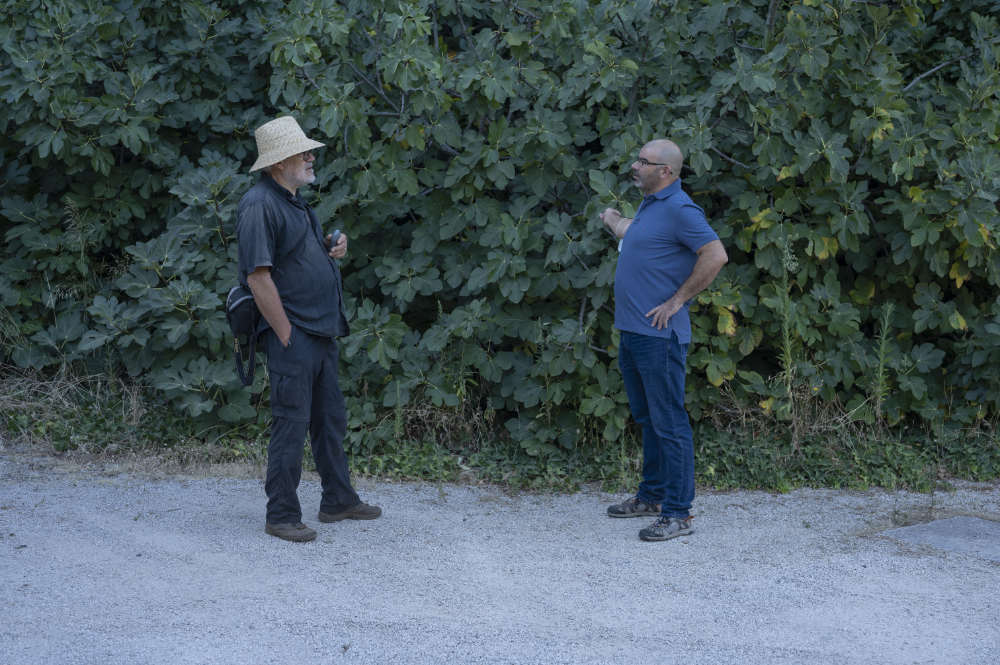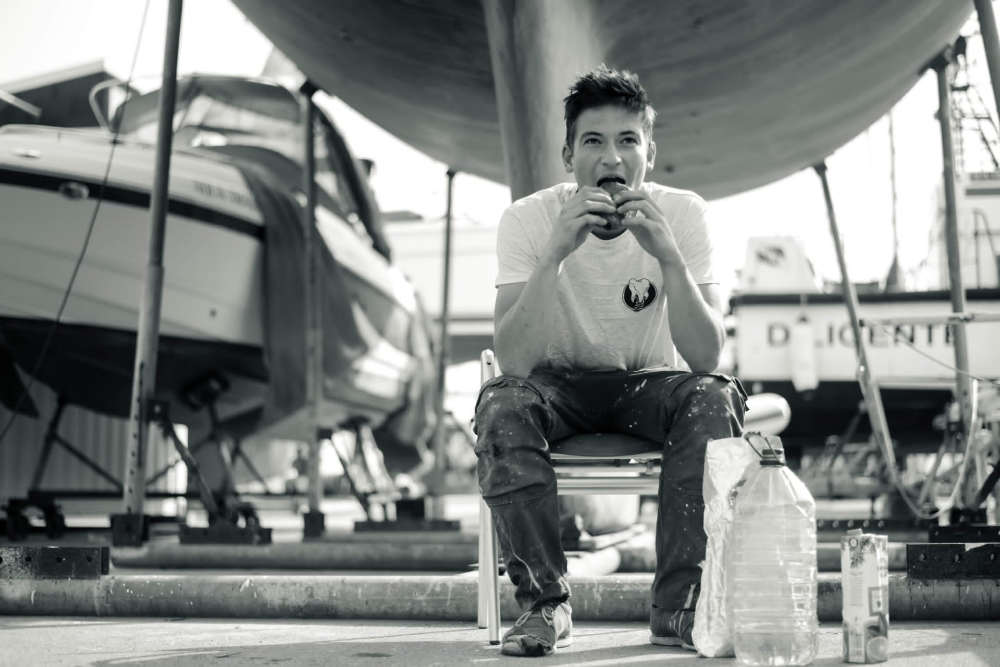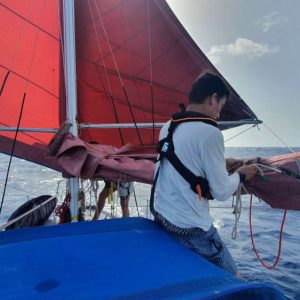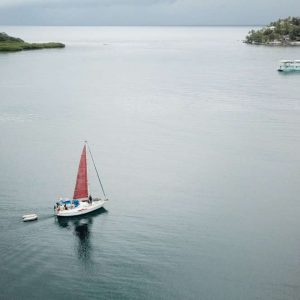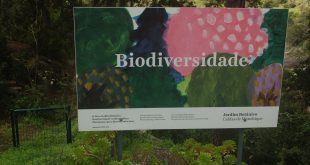Saturday 2nd October 2021.
It all started in June 1991. At that time it lasted for ten days, in 2003 too; in 2004 then five days, and the same in 2016. In 2018 then it went on for seven days. On those days the woods of the Monchique mountains were ablaze, well, whatever remained after each new fire, and every time we were left with a little less forest. During the last blaze the fire destroyed 28,000 hectares, and in 2003 a whopping 43,000 hectares of forest. But what that means you cannot really express by crunching a few numbers. Over the past 27 years of forest fires every time the wealth of the people decreased, until one day there was nothing left of it: destroyed nature, destroyed infrastructure, and every time when we see reports on Monchique, it’ll be about forest fires. This is where we stand now. More and more young people are taking flight. Can we blame them? Here in Monchique we’ve reached the end of our tether really, economically, socially and ecologically. Things can only get better.
This is why José Chaparro of the CDS/PP lost the elections, as Monchique has no future if you don’t have a firm plan for stemming these forest fires – or is there a future in the destruction of the former green lung of the Algarve? One thing is clear: we cannot carry on as before. Those who serve up electioneering platitudes without putting facts on the table about what this future is supposed to look like in practical terms will not gain a majority. I’ve known Monchique for over 30 years now. And it’s high time for a completely new policy that will bring peace. For my 30 years of experience in and around Monchique have always only brought me war: against nature, against the peaceful world making up the fauna and flora, against itself. So it’s high time to start changing this. People are craving peace. And peace starts with forgetting the filthy lucre for a one long moment in time.
After the elections
Yes, we need a sustainable economic plan for reconstruction. But how, people I talk to ask me, can Monchique become free of fires? I am a foreigner for starters, and an unpopular German to boot. At that point, when I’m looking for answers, I always tell the story told in the region where I grew up. The tale of the town of Schilda, which burnt down and was rebuilt. When they were done, the inhabitants realised in bewilderment that they had forgotten the windows in all the houses. It was pitch dark in all of them, as if it was always night. Until one of them came up with the idea to use buckets to carry the light into the houses, and so on and so on. Telling these kind of tales doesn’t makes you very popular. But this is about light. For in the light of day you’ll often discover things you can’t see in the darkness. And the light we have in our Algarve is unique, it’s the best light.
Doesn’t that serve to make us see the light? I suggested minimising the risks of forest fires, step by step – and one of the many facts available is that there has to be a reduction of the industrial eucalyptus forests to reduce the intensity of the fires – and at the same time the fire services have to work in a decentralised way to be able to reach the source of the fire a lot more quickly, within the first 15 minutes. Then we all have a chance that the fires may be put out as they are starting. We have to look after our fire services, equipping them well – and approach them with the same behaviour we have to gift nature: attention, care, love. In Monchique we need a separate division of fire services with good equipment, in terms of technical and human resources – well-paid professional teams – in every parish, in Marmelete, in Alferce and in Monchique itself. Then we don’t need to turn to neighbouring fire services, asking them meekly for help, not to Lisbon or Évora, not to Beja, Lamego or elsewhere. Let’s be honest here, we know exactly where the problem lies, and we know the solution. We just can’t be bothered, we tend to look the other way now and again, when in fact it’s important to look closely.
This is about preventing forest fires right at the beginning. And for this you have to attack the fire from two sides: lowering risks means to plant solid native mixed forests which retain moisture, rather than foreign monocultures that suck moisture out of the soil. Amongst the native tree species there are some that are very frugal, retaining this moisture in the soil they grow on. These are mostly slow-growing deciduous trees. In my woods you will find linden trees mixed in with cork oaks, with elm trees growing amongst them, as well as olive trees, various fruit trees; our brook is lined with alders, weeping willows and ash trees. There are a few carob trees, plus the odd umbrella pine and cedar tree. I have one single eucalyptus tree, no more. Biodiversity reigns rather than the unvarnished greed for money. Truly, this is about not abusing the forest as a commercial resource for the wood or paper industry. Only by planting the forest in such a way that it will save us from fires, and I can only emphasise this, will we start living in safety again.
A majority of deputies, the politicians in Lisbon, haven’t got a clue how you plant a mixed-leaf forest and which advantages this brings. The are looking at their Excel calculations with the tax income generated by companies such as Navigator and Altri. Hardly anyone is a farmer or a forester, hardly any of those politicians knows the difference between an ash and an alder, as most of them are lawyers or civil servants; they have learned professions that are in conflict with nature, even fanning the flames of this conflict. They are scared of leaving their air-conditioned offices to venture into nature, into the forest. They wouldn’t know what to do there. For a politician a forest means nothing more than wood and commercial exploitation and tax revenue. Many of them would never think about saving nature, the forest, saving humans too, as well as biodiversity. Maybe the forest can be used to organise a picnic in, on the day of the Carnation Revolution or on Labour Day, maybe the forest might be used as some kind of decoration if there’s a way to get profit out of it somehow. But to see the forest as something that, viewed altruistically, may simply BE the way it is, to reforest it with a mix of trees, and in such a way that it stores moisture is not something that would enter the head of the minister of the environment nor the agriculture minister, as they don’t know any better. And António Costa is also not of very much help. This is the root of the problem, ignorance. The forest is our most important ally in transforming CO2 into oxygen. A fire in the forest is a sacrilege.
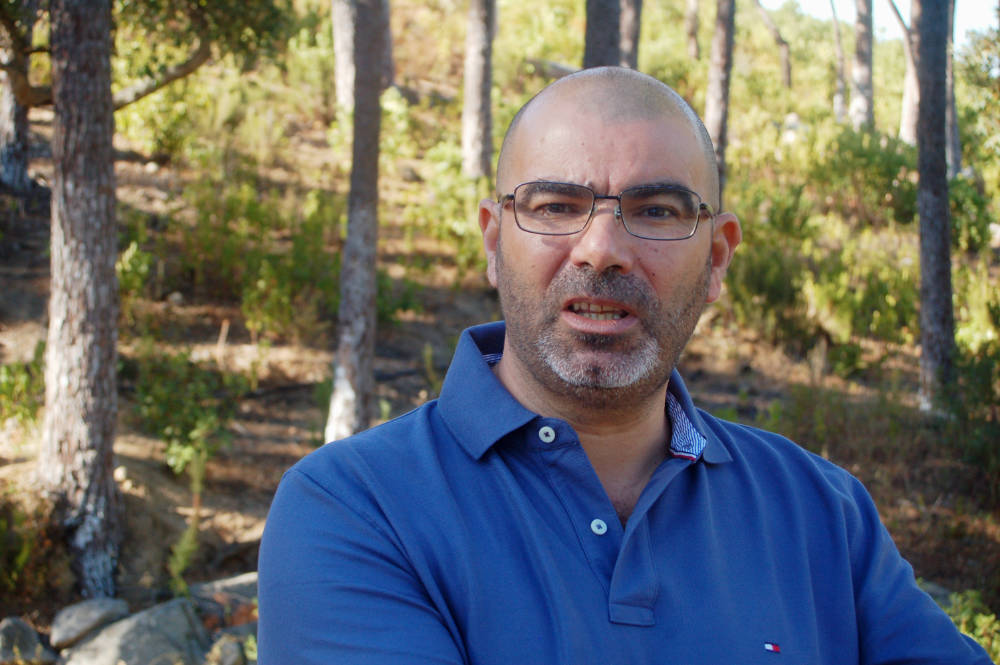
Monchique has cast its vote, and the socialist Paulo Alves is the new mayor, the winner of the local elections. Congratulations. We are told he is a scout, from this movement that finds the right trails through the forest on foot, into the forest as well as out of it again. Let’s give him some credit for these first four years in this office and let’s help him and his team to arrive at the right decisions on the path towards climate neutrality. One of the reasons that climate change has worsened lies in the forest fires that have happened over the past few years on most continents and that intensified over ever shorter periods of time, and we humans haven’t been able or willing to counter this.
This is about reducing the risk, so that a forest fire can’t reach the dimension where it can no longer be extinguished. If forests are shaped the way we had them back in the day before the invention of the motor saw, before industry transformed forests into monocultures for their use, they retain humidity and burn less intensively. In these cases well equipped fire services are able to put out a forest fire quickly. It’s all about how quickly they reach a fire. So, if Paulo Alves is aware of this mammoth task and were able to master it he can be sure of an entry in the history books – and it’s in his hands to create peace across the land, to reconcile humanity with nature.
Paulo Alves will now suspend his job at the bank where he was working in Lagoa. What does that mean? Every day he’ll emit less CO2 into the atmosphere, because his new workplace is just around the corner, at Monchique Town Hall. He can go there on foot. Now what would happen if humanity were to emit less CO2 into the atmosphere every day, if we started to undertake the first steps towards a climate-neutral life, now? All of our stories will be about that in the future, as otherwise soon we won’t have any stories to tell anymore.
Mayor Paulo Alves has a namesake, one he doesn’t share anything with at first glance apart from the name. Yet we humans are connected by a lot more than just a name. In 2015 we signed a generational contract in Paris, which binds us to limiting the temperature rise to 1.5 degrees Celsius. There is another Paulo, who is a tender 23 years of age and has bought and restored an old sailing boat. I am talking to him on ZOOM. Paulo is fulfilling his childhood dream. A few days ago Paulo berthed his boat in Panama – following a successful crossing of the Atlantic. He is taking this nine-metre long sailing boat around the world. ECO123 will tell the story of his round-the-world trip over the next editions of our magazine. Paulo is not originally from Portugal, but from Germany. This trip however began in Lagos on the Algarve. This is where he found the sailing boat of his life, restoring the wreck. You see, Paul Piendl is a boat builder by trade. In the spring of next year he is planning to sail across the Pacific, visiting the Galapagos Islands, Tahiti and sail all the way to Australia, before returning to Lagos in two or three years time, a world trip without CO2 emissions. That too is possible.
ECO123 will be accompanying him on his travels. And we’ll also be accompanying Paulo Alves on this journey through Monchique. We wish both good luck, one fair winds and following seas in his attempt to sail around the world without harming the environment or the climate, and the mayor that he may prove a skilful hand in stopping the forest fires. Whether they both arrive safe and sound at their destination is written in the stars, but courage, mindfulness and confidence should help them in mastering these tasks.
 Eco123 Revista da Economia e Ecologia
Eco123 Revista da Economia e Ecologia

